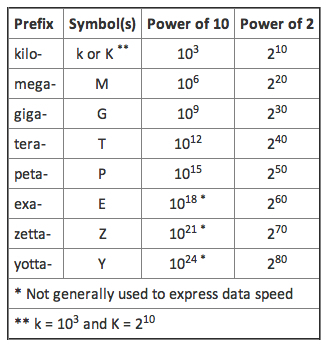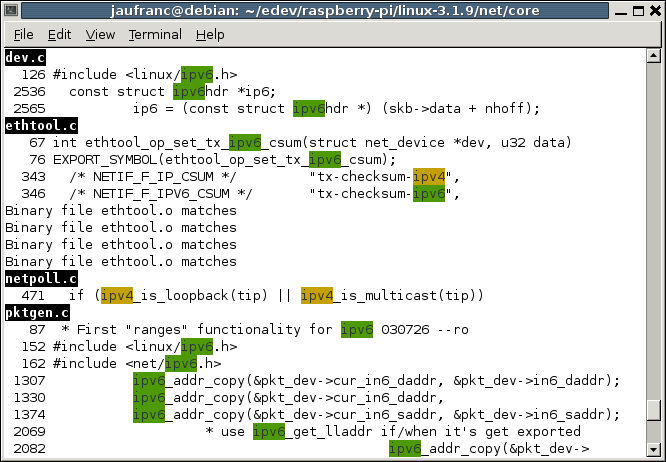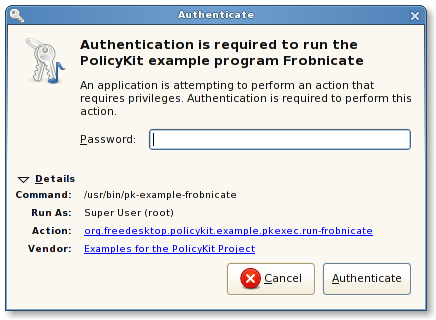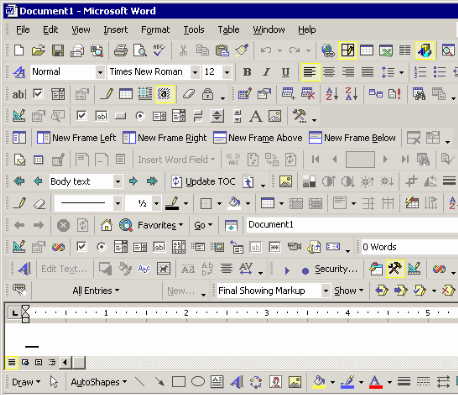Explain GFR

GFR Technical Terms
GFR: /G-F-R/ vt. [ITS] From `Grim File Reaper', an ITS and Lisp Machine utility. To remove a file or files according to some program-automated or semi-automatic manual procedure, especially one designed to reclaim mass storage space or reduce name-space clutter (the original GFR actually moved files to tape). Often generalized to pieces of data below file level. "I used to have his phone number, but I guess I {GFR}ed it." See also {prowler}, {reaper}. Compare {GC}, which discards only provably worthless stuff.
Remember GIGO

GIGO Technical Terms
GIGO: /gi:'goh/ [acronym] 1. `Garbage In, Garbage Out' --- usually said in response to {luser}s who complain that a program didn't complain about faulty data. Also commonly used to describe failures in human decision making due to faulty, incomplete, or imprecise data. 2. `Garbage In, Gospel Out': this more recent expansion is a sardonic comment on the tendency human beings have to put excessive trust in `computerized' data.
Discover gilley
gilley Technical Terms
gilley: [USENET] n. The unit of analogical bogosity. According to its originator, the standard for one gilley was "the act of bogotoficiously comparing the shutting down of 1000 machines for a day with the killing of one person". The milligilley has been found to suffice for most normal conversational exchanges.
Remember gillion

gillion Technical Terms
gillion: /gil'y*n/ or /jil'y*n/ [formed from {giga-} by analogy with mega/million and tera/trillion] n. 10^9. Same as an American billion or a British `milliard'. How one pronounces this depends on whether one speaks {giga-} with a hard or soft `g'.
Explain GIPS

GIPS Technical Terms
GIPS: /gips/ or /jips/ [analogy with {MIPS}] n. Giga-Instructions per Second (also possibly `Gillions of Instructions per Second'; see {gillion}). In 1991, this is used of only a handful of highly parallel machines, but this is expected to change. Compare {KIPS}.
Explain glark

glark Technical Terms
glark: /glark/ vt. To figure something out from context. "The System III manuals are pretty poor, but you can generally glark the meaning from context." Interestingly, the word was originally `glork'; the context was "This gubblick contains many nonsklarkish English flutzpahs, but the overall pluggandisp can be glorked [sic] from context" (David Moser, quoted by Douglas Hofstadter in his "Metamagical Themas" column in the January 1981 `Scientific American'). It is conjectured that hackish usage mutated the verb to `glark' because {glork} was already an established jargon term. Compare {grok}, {zen}.
Remember glass tty

glass tty Technical Terms
glass tty: /glas T-T-Y/ or /glas ti'tee/ n. A terminal that has a display screen but which, because of hardware or software limitations, behaves like a teletype or some other printing terminal, thereby combining the disadvantages of both: like a printing terminal, it can't do fancy display hacks, and like a display terminal, it doesn't produce hard copy. An example is the early `dumb' version of Lear-Siegler ADM 3 (without cursor control). See {tube}, {tty}; compare {dumb terminal}, {smart terminal}. See "{TV Typewriters}" (appendix A) for an interesting true story about a glass tty.
Explain glassfet
glassfet Technical Terms
glassfet: /glas'fet/ [by analogy with MOSFET, the acronym for `Metal-Oxide-Semiconductor Field-Effect Transistor'] n. Syn. {firebottle}, a humorous way to refer to a vacuum tube.
Discover glitch

glitch Technical Terms
glitch: /glich/ [from German `glitschen' to slip, via Yiddish `glitshen', to slide or skid] 1. n. A sudden interruption in electric service, sanity, continuity, or program function. Sometimes recoverable. An interruption in electric service is specifically called a `power glitch' (also {power hit}). This is of grave concern because it usually crashes all the computers. In jargon, though, a hacker who got to the middle of a sentence and then forgot how he or she intended to complete it might say, "Sorry, I just glitched". 2. vi. To commit a glitch. See {gritch}. 3. vt. [Stanford] To scroll a display screen, esp. several lines at a time. {{WAITS}} terminals used to do this in order to avoid continuous scrolling, which is distracting to the eye. 4. obs. Same as {magic cookie}, sense 2. All these uses of `glitch' derive from the specific technical meaning the term has in the electronic hardware world, where it is now techspeak. A glitch can occur when the inputs of a circuit change, and the outputs change to some {random} value for some very brief time before they settle down to the correct value. If another circuit inspects the output at just the wrong time, reading the random value, the results can be very wrong and very hard to debug (a glitch is one of many causes of electronic {heisenbug}s).
Discover glob

glob Technical Terms
glob: /glob/, *not* /glohb/ [UNIX] vt.,n. To expand special characters in a wildcarded name, or the act of so doing (the action is also called `globbing'). The UNIX conventions for filename wildcarding have become sufficiently pervasive that many hackers use some of them in written English, especially in email or news on technical topics. Those commonly encountered include the following: * wildcard for any string (see also {UN*X}) ? wildcard for any character (generally read this way only at the beginning or in the middle of a word) [] delimits a wildcard matching any of the enclosed characters {} alternation of comma-separated alternatives; thus, `foo{baz,qux}' would be read as `foobaz' or `fooqux' Some examples: "He said his name was [KC]arl" (expresses ambiguity). "I don't read talk.politics.*" (any of the talk.politics subgroups on {USENET}). Other examples are given under the entry for {X}. Compare {regexp}. Historical note: The jargon usage derives from `glob', the name of a subprogram that expanded wildcards in archaic pre-Bourne versions of the UNIX shell.
Expose Get a real computer!

Get a real computer! Technical Terms
Get a real computer!: imp. Typical hacker response to news that somebody is having trouble getting work done on a system that (a) is single-tasking, (b) has no hard disk, or (c) has an address space smaller than 4 megabytes. This is as of mid-1991; note that the threshold for `real computer' rises with time, and it may well be (for example) that machines with character-only displays will be generally considered `unreal' in a few years (GLS points out that they already are in some circles). See {essentials}, {bitty box}, and {toy}.
Remember Get a life!

Get a life! Technical Terms
Get a life!: imp. Hacker-standard way of suggesting that the person to whom you are speaking has succumbed to terminal geekdom (see {computer geek}). Often heard on {USENET}, esp. as a way of suggesting that the target is taking some obscure issue of {theology} too seriously. This exhortation was popularized by William Shatner on a "Saturday Night Live" episode in a speech that ended "Get a *life*!", but some respondents believe it to have been in use before then. It was certainly in wide use among hackers for at least five years before achieving mainstream currency around early 1992.
Expose gensym

gensym Technical Terms
gensym: /jen'sim/ [from MacLISP for `generated symbol'] 1. v. To invent a new name for something temporary, in such a way that the name is almost certainly not in conflict with one already in use. 2. n. The resulting name. The canonical form of a gensym is `Gnnnn' where nnnn represents a number; any LISP hacker would recognize G0093 (for example) as a gensym. 3. A freshly generated data structure with a gensymmed name. These are useful for storing or uniquely identifying crufties (see {cruft}).
Discover generate

generate Technical Terms
generate: vt. To produce something according to an algorithm or program or set of rules, or as a (possibly unintended) side effect of the execution of an algorithm or program. The opposite of {parse}. This term retains its mechanistic connotations (though often humorously) when used of human behavior. "The guy is rational most of the time, but mention nuclear energy around him and he'll generate {infinite} flamage."
Discover General Public Virus

General Public Virus Technical Terms
General Public Virus: n. Pejorative name for some versions of the {GNU} project {copyleft} or General Public License (GPL), which requires that any tools or {app}s incorporating copylefted code must be source-distributed on the same counter-commercial terms as GNU stuff. Thus it is alleged that the copyleft `infects' software generated with GNU tools, which may in turn infect other software that reuses any of its code. The Free Software Foundation's official position as of January 1991 is that copyright law limits the scope of the GPL to "programs textually incorporating significant amounts of GNU code", and that the `infection' is not passed on to third parties unless actual GNU source is transmitted (as in, for example, use of the Bison parser skeleton). Nevertheless, widespread suspicion that the {copyleft} language is `boobytrapped' has caused many developers to avoid using GNU tools and the GPL. Recent (July 1991) changes in the language of the version 2.00 license may eliminate this problem.
Explain gender mender

gender mender Technical Terms
gender mender: n. A cable connector shell with either two male or two female connectors on it, used to correct the mismatches that result when some {loser} didn't understand the RS232C specification and the distinction between DTE and DCE. Used esp. for RS-232C parts in either the original D-25 or the IBM PC's bogus D-9 format. Also called `gender bender', `gender blender', `sex changer', and even `homosexual adapter'; however, there appears to be some confusion as to whether a `male homosexual adapter' has pins on both sides (is male) or sockets on both sides (connects two males).
Remember geek out

geek out Technical Terms
geek out: vi. To temporarily enter techno-nerd mode while in a non-hackish context, for example at parties held near computer equipment. Especially used when you need to do something highly technical and don't have time to explain: "Pardon me while I geek out for a moment." See {computer geek}.
Explain gedanken

gedanken Technical Terms
gedanken: /g*-don'kn/ adj. Ungrounded; impractical; not well-thought-out; untried; untested. `Gedanken' is a German word for `thought'. A thought experiment is one you carry out in your head. In physics, the term `gedanken experiment' is used to refer to an experiment that is impractical to carry out, but useful to consider because you can reason about it theoretically. (A classic gedanken experiment of relativity theory involves thinking about a man in an elevator accelerating through space.) Gedanken experiments are very useful in physics, but you have to be careful. It's too easy to idealize away some important aspect of the real world in contructing your `apparatus'. Among hackers, accordingly, the word has a pejorative connotation. It is said of a project, especially one in artificial intelligence research, that is written up in grand detail (typically as a Ph.D. thesis) without ever being implemented to any great extent. Such a project is usually perpetrated by people who aren't very good hackers or find programming distasteful or are just in a hurry. A `gedanken thesis' is usually marked by an obvious lack of intuition about what is programmable and what is not, and about what does and does not constitute a clear specification of an algorithm. See also {AI-complete}, {DWIM}.
Expose GCOS

GCOS Technical Terms
GCOS: /jee'kohs/ n. A {quick-and-dirty} {clone} of System/360 DOS that emerged from GE around 1970; originally called GECOS (the General Electric Comprehensive Operating System). Later kluged to support primitive timesharing and transaction processing. After the buyout of GE's computer division by Honeywell, the name was changed to General Comprehensive Operating System (GCOS). Other OS groups at Honeywell began referring to it as `God's Chosen Operating System', allegedly in reaction to the GCOS crowd's uninformed and snotty attitude about the superiority of their product. All this might be of zero interest, except for two facts: (1) The GCOS people won the political war, and this led in the orphaning and eventual death of Honeywell {{Multics}}, and (2) GECOS/GCOS left one permanent mark on UNIX. Some early UNIX systems at Bell Labs used GCOS machines for print spooling and various other services; the field added to `/etc/passwd' to carry GCOS ID information was called the `GECOS field' and survives today as the `pwgecos' member used for the user's full name and other human-ID information. GCOS later played a major role in keeping Honeywell a dismal also-ran in the mainframe market, and was itself ditched for UNIX in the late 1980s when Honeywell retired its aging {big iron} designs.
Remember GC

GC Technical Terms
GC: /G-C/ [from LISP terminology; `Garbage Collect'] 1. vt. To clean up and throw away useless things. "I think I'll GC the top of my desk today." When said of files, this is equivalent to {GFR}. 2. vt. To recycle, reclaim, or put to another use. 3. n. An instantiation of the garbage collector process. Garbage collection' is computer-science jargon for a particular class of strategies for dynamically reallocating computer memory. One such strategy involves periodically scanning all the data in memory and determining what is no longer accessible; useless data items are then discarded so that the memory they occupy can be recycled and used for another purpose. Implementations of the LISP language usually use garbage collection. In jargon, the full phrase is sometimes heard but the {abbrev} is more frequently used because it is shorter. Note that there is an ambiguity in usage that has to be resolved by context: "I'm going to garbage-collect my desk" usually means to clean out the drawers, but it could also mean to throw away or recycle the desk itself.
Discover gaseous

gaseous Technical Terms
gaseous: adj. Deserving of being {gas}sed. Disseminated by Geoff Goodfellow while at SRI; became particularly popular after the Moscone-Milk killings in San Francisco, when it was learned that the defendant Dan White (a politician who had supported Proposition 7) would get the gas chamber under Proposition 7 if convicted of first-degree murder (he was eventually convicted of manslaughter).
Discover gas

gas Technical Terms
gas: [as in `gas chamber'] 1. interj. A term of disgust and hatred, implying that gas should be dispensed in generous quantities, thereby exterminating the source of irritation. "Some loser just reloaded the system for no reason! Gas!" 2. interj. A suggestion that someone or something ought to be flushed out of mercy. "The system's getting {wedged} every few minutes. Gas!" 3. vt. To {flush} (sense 1). "You should gas that old crufty software." 4. [IBM] n. Dead space in nonsequentially organized files that was occupied by data that has been deleted; the compression operation that removes it is called `degassing' (by analogy, perhaps, with the use of the same term in vacuum technology). 5. [IBM] n. Empty space on a disk that has been clandestinely allocated against future need.
Discover garply

garply Technical Terms
garply: /gar'plee/ [Stanford] n. Another metasyntactic variable (see {foo}); once popular among SAIL hackers.
Remember g*ng bang

g*ng bang Technical Terms
g*ng bang: n. The use of large numbers of loosely coupled programmers in an attempt to wedge a great many features into a product in a short time. Though there have been memorable gang bangs (e.g., that over-the-weekend assembler port mentioned in Steven Levy's `Hackers'), most are perpetrated by large companies trying to meet deadlines and produce enormous buggy masses of code entirely lacking in {orthogonal}ity. When market-driven managers make a list of all the features the competition has and assign one programmer to implement each, they often miss the importance of maintaining a coherent design. See also {firefighting}, {Mongolian Hordes technique}, {Conway's Law}.
Expose gag

gag Technical Terms
gag: vi. Equivalent to {choke}, but connotes more disgust. "Hey, this is FORTRAN code. No wonder the C compiler gagged." See also {barf}.
Remember gabriel

gabriel Technical Terms
gabriel: /gay'bree-*l/ [for Dick Gabriel, SAIL LISP hacker and volleyball fanatic] n. An unnecessary (in the opinion of the opponent) stalling tactic, e.g., tying one's shoelaces or combing one's hair repeatedly, asking the time, etc. Also used to refer to the perpetrator of such tactics. Also, `pulling a Gabriel', `Gabriel mode'.
Explain fuzzball

fuzzball Technical Terms
fuzzball: [TCP/IP hackers] n. A DEC LSI-11 running a particular suite of homebrewed software written by Dave Mills and assorted co-conspirators, used in the early 1980s for Internet protocol testbedding and experimentation. These were used as NSFnet backbone sites in its early 56KB-line days; a few are still active on the Internet as of early 1991, doing odd jobs such as network time service.
Discover funky
funky Technical Terms
funky: adj. Said of something that functions, but in a slightly strange, klugey way. It does the job and would be difficult to change, so its obvious non-optimality is left alone. Often used to describe interfaces. The more bugs something has that nobody has bothered to fix because workarounds are easier, the funkier it is. {TECO} and UUCP are funky. The Intel i860's exception handling is extraordinarily funky. Most standards acquire funkiness as they age. "The new mailer is installed, but is still somewhat funky; if it bounces your mail for no reason, try resubmitting it." "This UART is pretty funky. The data ready line is active-high in interrupt mode and active-low in DMA mode." See {fuggly}.
Explain fum

fum Technical Terms
fum: [XEROX PARC] n. At PARC, often the third of the standard {metasyntactic variable}s (after {foo} and {bar}. Competes with {baz}, which is more common outside PARC.
Remember fuggly

fuggly Technical Terms
fuggly: /fuhg'lee/ adj. Emphatic form of {funky}; funky + ugly). Unusually for hacker jargon, this may actually derive from black street-jive. To say it properly, the first syllable should be growled rather than spoken. Usage: humorous. "Man, the {{ASCII}}-to-{{EBCDIC}} code in that printer driver is *fuggly*." See also {wonky}.
Remember fuel up

fuel up Technical Terms
fuel up: vi. To eat or drink hurriedly in order to get back to hacking. "Food-p?" "Yeah, let's fuel up." "Time for a {great-wall}!" See also {{oriental food}}.
Remember fudge factor

fudge factor Technical Terms
fudge factor: n. A value or parameter that is varied in an ad hoc way to produce the desired result. The terms `tolerance' and {slop} are also used, though these usually indicate a one-sided leeway, such as a buffer that is made larger than necessary because one isn't sure exactly how large it needs to be, and it is better to waste a little space than to lose completely for not having enough. A fudge factor, on the other hand, can often be tweaked in more than one direction. A good example is the `fuzz' typically allowed in floating-point calculations: two numbers being compared for equality must be allowed to differ by a small amount; if that amount is too small, a computation may never terminate, while if it is too large, results will be needlessly inaccurate. Fudge factors are frequently adjusted incorrectly by programmers who don't fully understand their import. See also {coefficient of X}.
Expose fudge

fudge Technical Terms
fudge: 1. vt. To perform in an incomplete but marginally acceptable way, particularly with respect to the writing of a program. "I didn't feel like going through that pain and suffering, so I fudged it --- I'll fix it later." 2. n. The resulting code.
Explain FUD wars

FUD wars Technical Terms
FUD wars: /fuhd worz/ n. [from {FUD}] Political posturing engaged in by hardware and software vendors ostensibly committed to standardization but actually willing to fragment the market to protect their own shares. The UNIX International vs. OSF conflict is but one outstanding example.
Discover FUD

FUD Technical Terms
FUD: /fuhd/ n. Defined by Gene Amdahl after he left IBM to found his own company: "FUD is the fear, uncertainty, and doubt that IBM sales people instill in the minds of potential customers who might be considering [Amdahl] products." The idea, of course, was to persuade them to go with safe IBM gear rather than with competitors' equipment. This was traditionally done by promising that Good Things would happen to people who stuck with IBM, but Dark Shadows loomed over the future of competitors' equipment or software. See {IBM}.
Expose fu*k me harder
fu*k me harder Technical Terms
fu*k me harder: excl. Sometimes uttered in response to egregious misbehavior, esp. in software, and esp. of misbehaviors which seem unfairly persistent (as though designed in by the imp of the perverse). Often theatrically elaborated: "Aiighhh! Fuck me with a piledriver and 16 feet of curare-tipped wrought-iron fence *and no lubricants*!" The phrase is sometimes heard abbreviated `FMH' in polite company. [This entry is an extreme example of the hackish habit of coining elaborate and evocative terms for lossage. Here we see a quite self-conscious parody of mainstream expletives that has become a running gag in part of the hacker culture; it illustrates the hackish tendency to turn any situation, even one of extreme frustration, into an intellectual game (the point being, in this case, to creatively produce a long-winded description of the most anatomically absurd mental image possible --- the short forms implicitly allude to all the ridiculous long forms ever spoken). Scatological language is actually relatively uncommon among hackers, and there was some controversy over whether this entry ought to be included at all. As it reflects a live usage recognizably peculiar to the hacker culture, we feel it is in the hackish spirit of truthfulness and opposition to all forms of censorship to record it here. --ESR & GLS]
Discover FUBAR

FUBAR Technical Terms
FUBAR: n. The Failed UniBus Address Register in a VAX. A good example of how jargon can occasionally be snuck past the {suit}s; see {foobar}, and {foo} for a fuller etymology.
Expose FTP

FTP Technical Terms
FTP: /F-T-P/, *not* /fit'ip/ 1. [techspeak] n. The File Transfer Protocol for transmitting files between systems on the Internet. 2. vt. To {beam} a file using the File Transfer Protocol. 3. Sometimes used as a generic even for file transfers not using {FTP}. "Lemme get a copy of `Wuthering Heights' ftp'd from uunet."
Remember fry

fry Technical Terms
fry: 1. vi. To fail. Said especially of smoke-producing hardware failures. More generally, to become non-working. Usage: never said of software, only of hardware and humans. See {fried}, {magic smoke}. 2. vt. To cause to fail; to {roach}, {toast}, or {hose} a piece of hardware. Never used of software or humans, but compare {fried}.
Expose frotzed

frotzed Technical Terms
frotzed: /frotst/ adj. {down} because of hardware problems. Compare {fried}. A machine that is merely frotzed may be fixable without replacing parts, but a fried machine is more seriously damaged.
Discover frotz

frotz Technical Terms
frotz: /frots/ 1. n. See {frobnitz}. 2. `mumble frotz': An interjection of very mild disgust.
Remember front end

front end Technical Terms
front end: n. 1. An intermediary computer that does set-up and filtering for another (usually more powerful but less friendly) machine (a `back end'). 2. What you're talking to when you have a conversation with someone who is making replies without paying attention. "Look at the dancing elephants!" "Uh-huh." "Do you know what I just said?" "Sorry, you were talking to the front end." See also {fepped out}. 3. Software that provides an interface to another program `behind' it, which may not be as user-friendly. Probably from analogy with hardware front-ends (see sense 1) that interfaced with mainframes.
Discover frogging
frogging Technical Terms
frogging: [University of Waterloo] v. 1. Partial corruption of a text file or input stream by some bug or consistent glitch, as opposed to random events like line noise or media failures. Might occur, for example, if one bit of each incoming character on a tty were stuck, so that some characters were correct and others were not. See {terminak} for a historical example. 2. By extension, accidental display of text in a mode where the output device emits special symbols or mnemonics rather than conventional ASCII. Often happens, for example, when using a terminal or comm program on a device like an IBM PC with a special `high-half' character set and with the bit-parity assumption wrong. A hacker sufficiently familiar with ASCII bit patterns might be able to read the display anyway.
Discover frog

frog Technical Terms
frog: alt. `phrog' 1. interj. Term of disgust (we seem to have a lot of them). 2. Used as a name for just about anything. See {foo}. 3. n. Of things, a crock. 4. n. Of people, somewhere in between a turkey and a toad. 5. `froggy': adj. Similar to `bagbiting' (see {bagbiter}), but milder. "This froggy program is taking forever to run!"
Expose frobnitz

frobnitz Technical Terms
frobnitz: /frob'nits/, pl. `frobnitzem' /frob'nit-zm/ or `frobni' /frob'ni:/ [TMRC] n. An unspecified physical object, a widget. Also refers to electronic black boxes. This rare form is usually abbreviated to `frotz', or more commonly to {frob}. Also used are `frobnule' (/frob'n[y]ool/) and `frobule' (/frob'yool/). Starting perhaps in 1979, `frobozz' /fr*-boz'/ (plural: `frobbotzim' /fr*-bot'zm/) has also become very popular, largely through its exposure as a name via {Zork}. These can also be applied to nonphysical objects, such as data structures. Pete Samson, compiler of the {TMRC} lexicon, adds, "Under the TMRC [railroad] layout were many storage boxes, managed (in 1958) by David R. Sawyer. Several had fanciful designations written on them, such as `Frobnitz Coil Oil'. Perhaps DRS intended Frobnitz to be a proper name, but the name was quickly taken for the thing". This was almost certainly the origin of the term.
Remember frobnicate

frobnicate Technical Terms
frobnicate: /frob'ni-kayt/ vt. [Poss. derived from {frobnitz}, and usually abbreviated to {frob}, but `frobnicate' is recognized as the official full form.] To manipulate or adjust, to tweak. One frequently frobs bits or other 2-state devices. Thus: "Please frob the light switch" (that is, flip it), but also "Stop frobbing that clasp; you'll break it". One also sees the construction `to frob a frob'. See {tweak} and {twiddle}. Usage: frob, twiddle, and tweak sometimes connote points along a continuum. `Frob' connotes aimless manipulation; `twiddle' connotes gross manipulation, often a coarse search for a proper setting; `tweak' connotes fine-tuning. If someone is turning a knob on an oscilloscope, then if he's carefully adjusting it, he is probably tweaking it; if he is just turning it but looking at the screen, he is probably twiddling it; but if he's just doing it because turning a knob is fun, he's frobbing it. The variant `frobnosticate' has been recently reported.
Expose frob

frob Technical Terms
frob: /frob/ 1. n. [MIT] The {TMRC} definition was "FROB = a protruding arm or trunnion"; by metaphoric extension, a `frob' is any random small thing; an object that you can comfortably hold in one hand; something you can frob. See {frobnitz}. 2. vt. Abbreviated form of {frobnicate}. 3. [from the {MUD} world] A command on some MUDs that changes a player's experience level (this can be used to make wizards); also, to request {wizard} privileges on the `professional courtesy' grounds that one is a wizard elsewhere. The command is actually `frobnicate' but is universally abbreviated to the shorter form.
Expose fritterware

fritterware Technical Terms
fritterware: n. An excess of capability that serves no productive end. The canonical example is font-diddling software on the Mac (see {macdink}); the term describes anything that eats huge amounts of time for quite marginal gains in function but seduces people into using it anyway.
Discover friode

friode Technical Terms
friode: /fri:'ohd/ [TMRC] n. A reversible (that is, fused or blown) diode. Compare {fried}; see also {SED}, {LER}.
Explain fried

fried Technical Terms
fried: adj. 1. Non-working due to hardware failure; burnt out. Especially used of hardware brought down by a `power glitch' (see {glitch}), {drop-outs}, a short, or some other electrical event. (Sometimes this literally happens to electronic circuits! In particular, resistors can burn out and transformers can melt down, emitting noxious smoke --- see {friode}, {SED} and {LER}. However, this term is also used metaphorically.) Compare {frotzed}. 2. Of people, exhausted. Said particularly of those who continue to work in such a state. Often used as an explanation or excuse. "Yeah, I know that fix destroyed the file system, but I was fried when I put it in." Esp. common in conjunction with `brain': "My brain is fried today, I'm very short on sleep."

